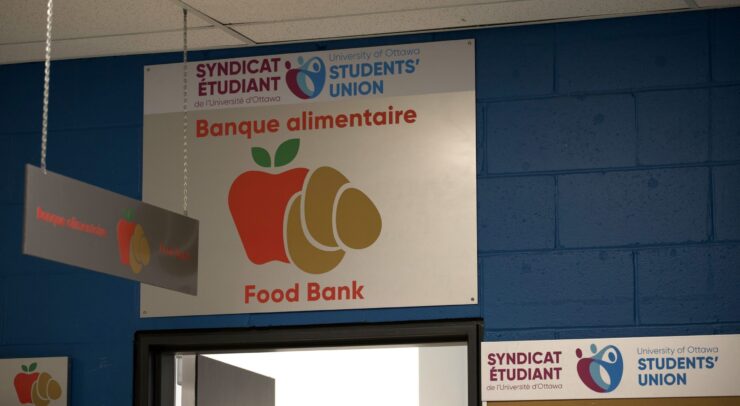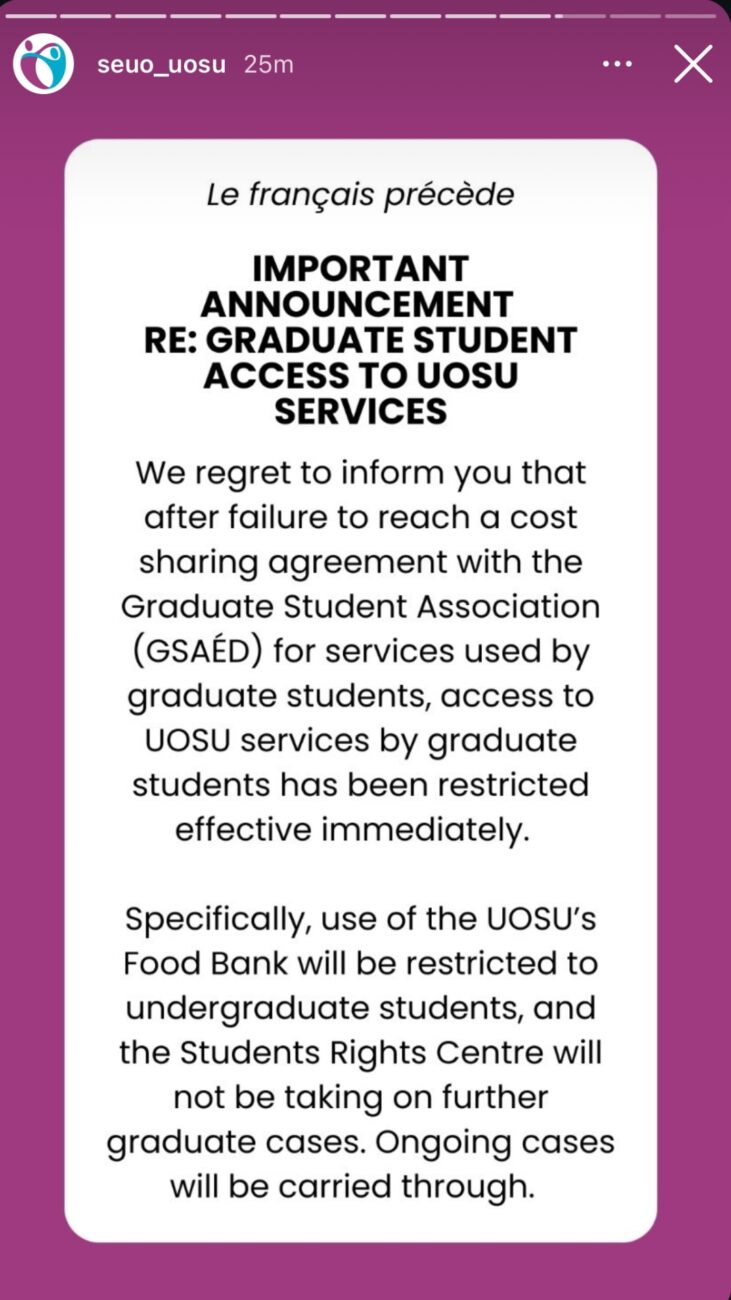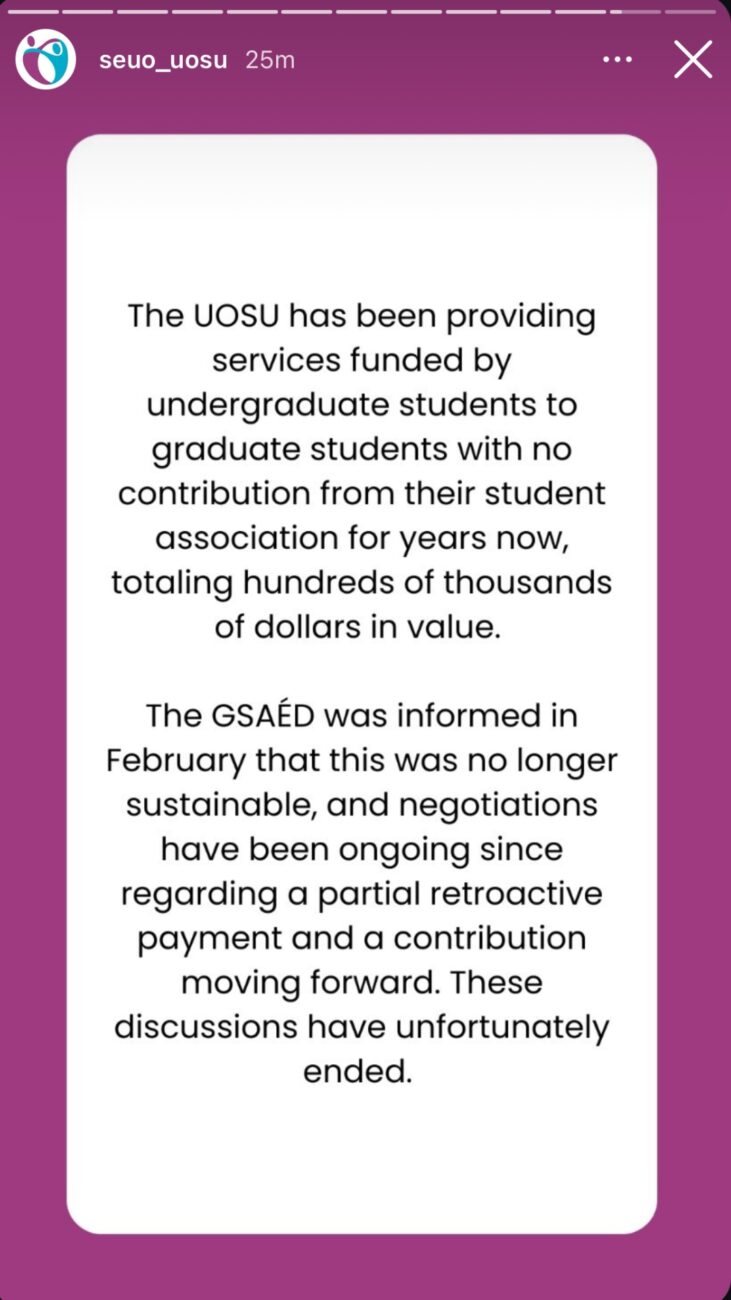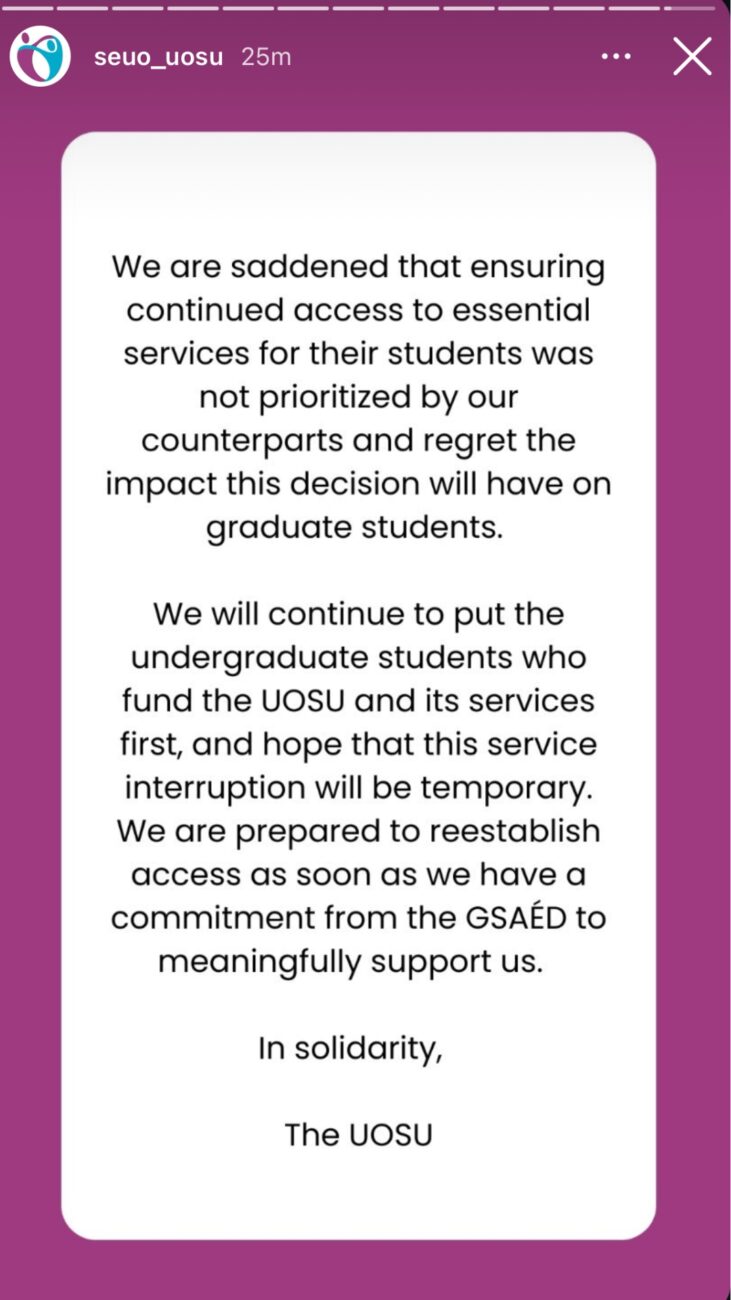GSAED currently provides no funding for services operated by UOSU despite high usage by graduate students
In a decision announced Friday afternoon, graduate students will no longer be able to utilize the UOSU Food Bank or submit new cases to the Student Rights Centre effective immediately due to the lack of a funding agreement between UOSU (University of Ottawa Students Association) and GSAÉD (Graduate Students Association).
“The UOSU has been providing services funded by undergraduate students to graduate students with no contribution from their student association for years now, totaling hundreds of thousands of dollars in value,” reads UOSU’s statement, which was published at 2 p.m. on their Instagram story.
“The GSAÉD was informed in February that this was no longer sustainable, and negotiations have been ongoing since regarding a partial retroactive payment and a contribution moving forward. These discussions have unfortunately ended.”
UOSU President Delphine Robitaille told the Fulcrum Friday afternoon that while the sides had moved closer since beginning negotiations in February, GSAÉD had ignored multiple soft deadlines for an agreement in the previous few months.
“The [last offer from GSAÉD] didn’t meet our operational needs,” said Robitaille, adding that UOSU had initially hoped for an agreement to be completed and included in their June budget. “The hope was for this agreement to be concluded for the adoption of the budget so that we could actually plan for the year and plan for what supporting graduate students would look like.”
Robitaille noted that the deadline was extended to Aug. 30, and that GSAÉD reached out after that deadline with an offer they had proposed previously.
Dating back to last September, the UOSU Food Bank had experienced a 258 per cent increase in users compared to the previous year, while receiving dwindling food supply from partners like the Ottawa Food Bank.
Robitaille told the Fulcrum that demand has continued to outpace capacity, adding that the quotas of food they receive from the Ottawa Food Bank have been “basically cut to nothing,” leading UOSU to “almost exclusively” support the food bank. UOSU currently pays around $250,000 a year to operate the food bank, located in the UCU.
Robitaille shared internal documents with the Fulcrum showing that graduate students made up 47 per cent of the food banks usages between September 2023 and June 2024. The figures were lower — but still disproportionate when compared to enrollment — at the Student Rights Centre, where 25 per cent of cases are graduate students.
“We’ll definitely be redirecting [graduate students] to the closest Community Food Bank and encouraging them to reach out to the general manager at GSAÉD to share their concerns and their disappointments,” said Robitaille.
“On a personal level, this is a very disappointing decision to have to make. I wish that we could support every member of the [U of O] community, and, you know, beyond that. But unfortunately, with the [usage increases] that we’ve seen at the food bank and the subsequent [stock cuts], that was impossible.”
Ongoing cases regarding graduate students at the Student Rights Centre will still proceed.
Executives from GSAÉD did not respond to the Fulcrum’s request for comment in time for the communicated publication deadline.
- Editors Note: This post was updated at 8:17 p.m. on Sep. 6 to correct an error in the cited budget of the food bank, it was changed from $4 million to $250,000.
- Editors Note: On Sept. 10, GSAED governance commissioner Marc Biglary responded to the Fulcrum’s request for comment. “The GSAÉD entered negotiations with the UOSU in good faith regarding the Food Bank, Student Rights Centre, and Feminist Resource Centre, with the goal of securing continued access to these essential services for graduate students. Unfortunately, the UOSU has not proposed an agreement that equitably addresses our members’ needs, nor have they accepted any of our proposals. Their recent decision to restrict access for graduate students and end negotiations was disappointing. In response, the GSAÉD is directing its resources to assist students in need of emergency food relief and connecting them with community services. We continue to recognize the serious issue of food insecurity on campus, which affects both undergraduate and graduate students, and encourage any affected GSAÉD members to contact us at info@gsaed.ca for further assistance.”












